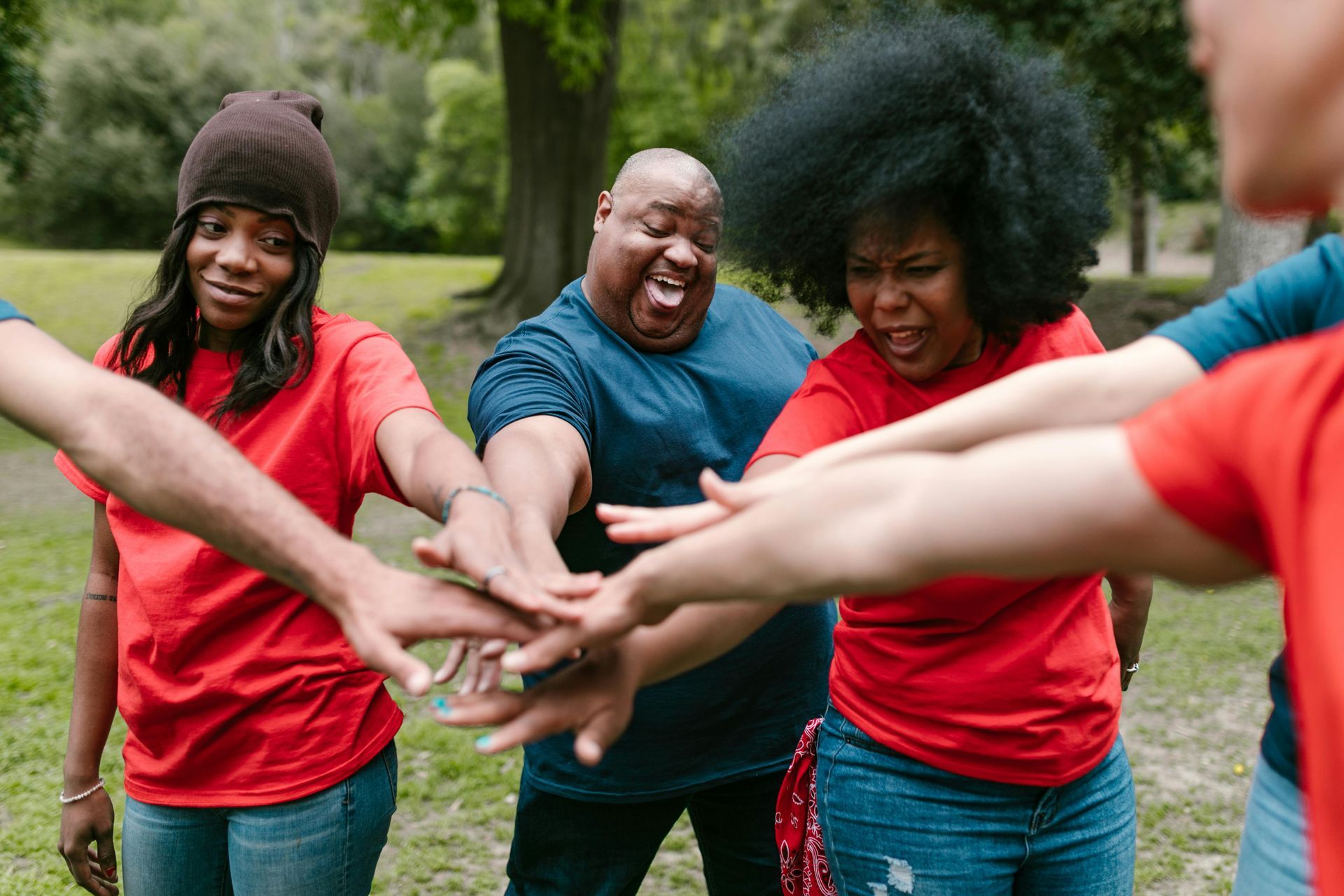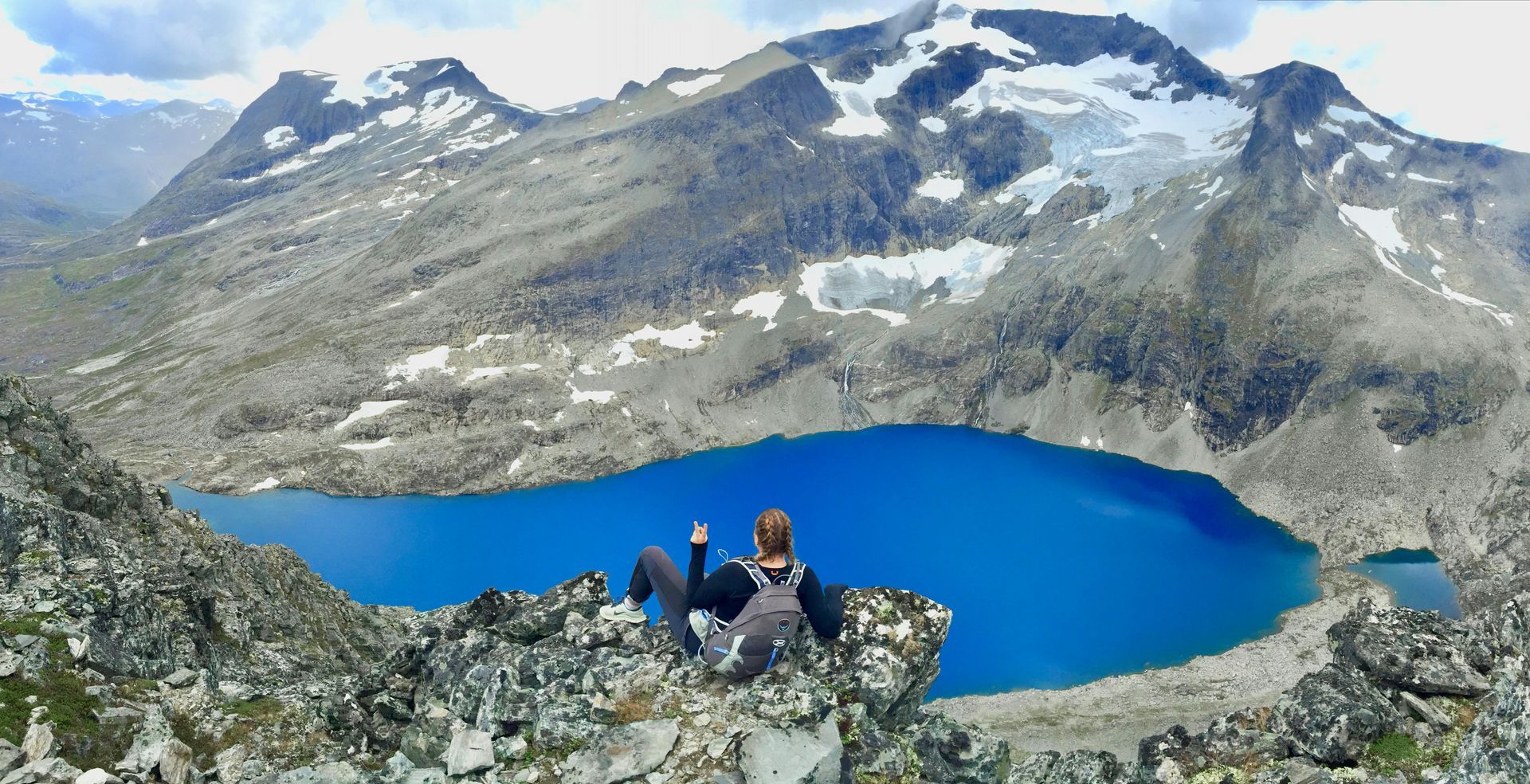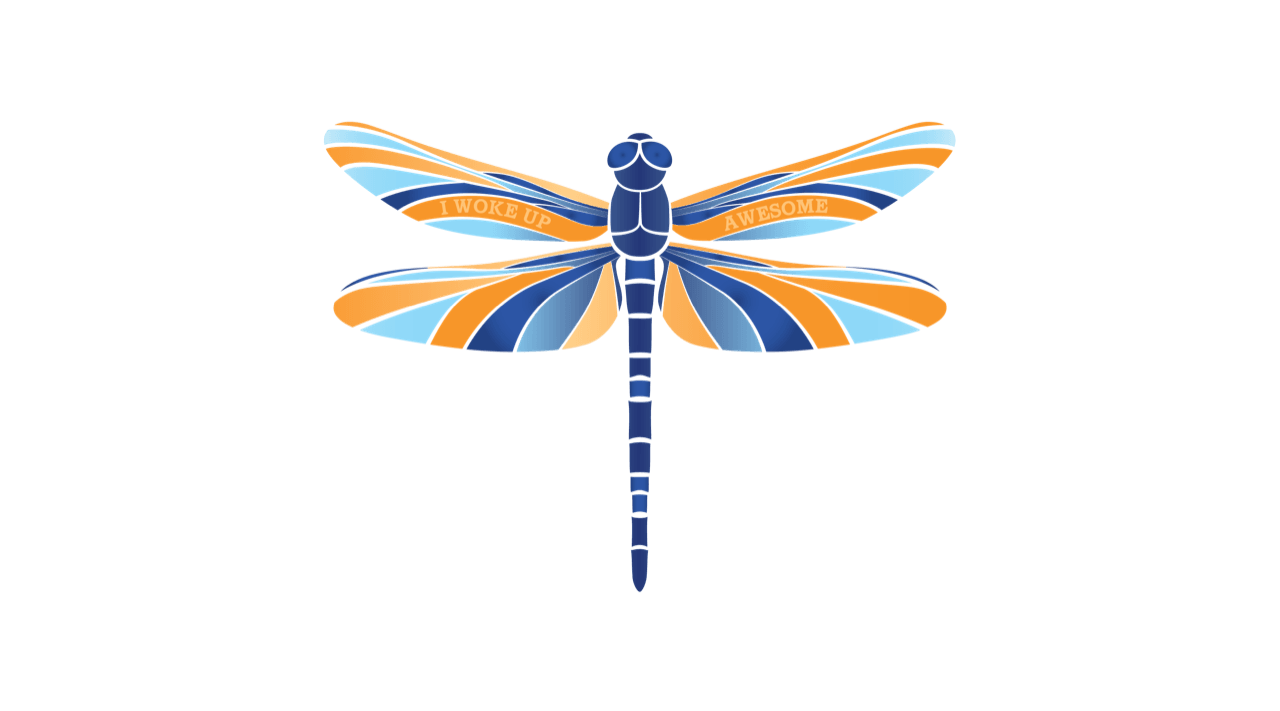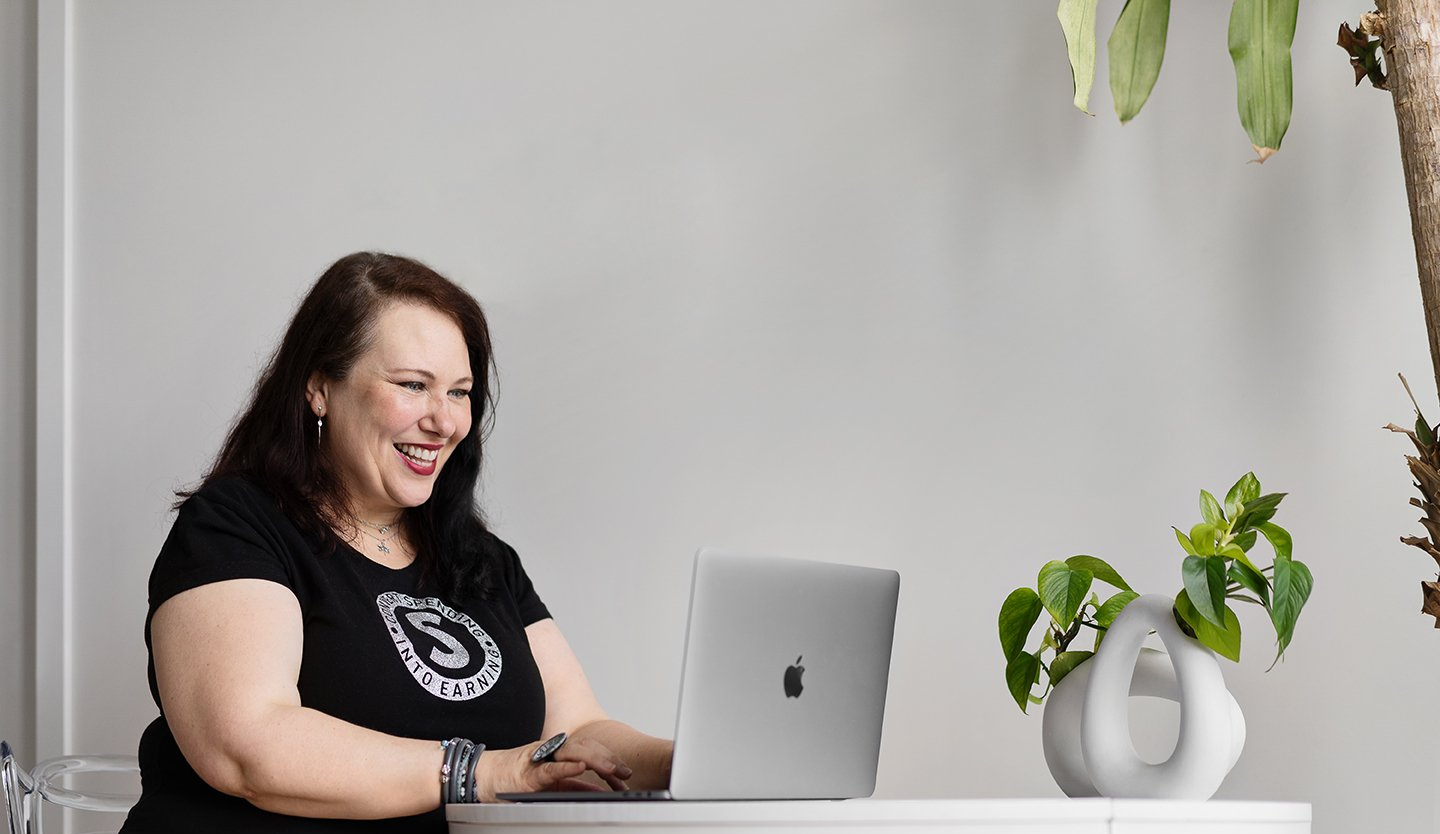PODCASTS - Plate 56 - Trista's PL8STORY Podcast

This week we meet Patrick Huba, from the Broadcast Capital of the world - Schenectady, NY. Patrick is a podcaster and host of The Huba Show. He covers topics from candy bar wrapper designs to exit doors that are locked durning normal business hours and so much more. We talk license plates, the railroad and he teaches me about Domain Squatting as a side hustle. Let’s go meet Patrick. www.hubashow.com
Connect with Patrick:
https://www.twitter.com/Huba
https://www.instagram.com/HubaShow
https://www.facebook.com/HubaShow
http://www.HubaShow.com
Connect with PL8STORY:
Trista's PL8STORY Podcast Links
Nominate a plate - https://www.pl8story.com
Meet your host - https://www.iwokeupawesome.com
Subscribe to Trista's PL8STORY Podcast on Apple Podcast (http://bit.ly/itunespl8story), Google Podcast, Spotify or your favorite podcast app and access all published episodes
Episode Transcript available below.
PODCASTS EPISODE TRANSCRIPT - TRISTA'S PL8STORY PODCAST
Trista, Host: [00:00:00]Welcome to this week's episode of Trista's PL8STORY (Plate Story) Podcast. I'm Trista Polo from iwokeupawesome.com and I am your host. Each week, we learn the story behind that vanity plate. You know, the one you saw driving down the road... what did it say? What did it mean? Why did they choose it?
I'm so excited today to have Patrick Huba from Schenectady, New York, his license plate is PODCASTS. How fun is that? Welcome, Patrick.
Patrick Huba: Hey, welcome. Thank you very much. I'm
Trista, Host: excited to have you and your fellow podcaster as
Patrick Huba: well. Yes, I am. HubaShow.com. That's my podcast.
Trista, Host: Awesome. Well, we're going to talk about that and lots of other stuff, but of course we have to start with your plate story.
I'd love to know the story behind your plate PODCASTS.
Patrick Huba: So when I moved back to New York originally, when I was in New York, I had my last name. HUBA all right. I couldn't believe it was available. It could, because for years I checked periodically on the DMV website, they have a section on the [00:01:00] website. We can look at vanity plates and everything else.
It wasn't available. And then one day I was like, you know what? I was, it was like a rainy day in the summer. I said, let me check it out. So I type it all out. And I came back and said, there's no way because it's four letters. The smaller you go character count the harder it is to get a plate, especially one that sounds good.
So I saw my last name and I'm like, I have to have it. Put it in had the plate had that for about four or five years when I relocated to Florida, decided not to get the vanity plate.
I had a regular Florida plate was down there for a couple of years, came back here and just on a whim one day I was like, you know what, let me look up vanity plates. I was bored. I was like, you know what? Cause I liked doing domain names and stuff. So vanity places is like another, like branch of that. And I looked it up and I said, no way PODCASTS is available.
With the height with the explosion of podcasting? I couldn't believe it. I didn't even think about it.
I put boom. I put all my credit card information in and I got it. It was unbelievable.
Trista, Host: That's awesome. You know what [00:02:00] I love about your plate? Is it, you didn't use a zero or a five or a three, like it's actually spelled out.
Patrick Huba: Yeah. There's no guessing. There's no guessing there's no guesswork. You don't need to code book to have it.
You don't have to be driving along and you're looking, you know, like sometimes I want to pull over and ask people because there was a plate I saw a couple of weeks ago. And it's really bizarre. Over the last few weeks, I've been seeing tons of vanity plates all over the place. I saw a plate. I couldn't figure out what it was, but it was called poor speller with the little POR.
And then it was like S PLR. And I'm looking like, quite figured out what it was, you know, but I was telling this person for like five minutes, the whole time of it I could have had, who knows what behind me, or next to me, I had no idea that I'm looking because I was so determined to figure out what it was.
Trista, Host: That's awesome.
Patrick Huba: Yeah.
In New York state, you only have eight characters. I think other States have nine. No,
Trista, Host: everybody has seven. And then, yeah. So every state except for New [00:03:00] York and I think it might be North Carolina, there's only two States that allows eight characters. Every other state is seven.
Patrick Huba: No kidding. So New York were wow.
Trista, Host: Yeah. That's why they're so popular in New York, even though they're more pricey than a lot of places because they are the eight characters.
Patrick Huba: Yeah. That's probably a good reason. I mean, there's, there's, there's so many plates around up here.
Trista, Host: Now you had another license plate you tried to get, and you were not successful. And I thought that was a fun story. Can you tell us about that?
Patrick Huba: Okay. So a long time ago I bought a 1996 Chevy Caprice ex police car. All right. I love to ex police cars. They were boats, but they were, they were fast and they were well-made.
So I applied for the plate police with O and O and L flipped. So it was PLOICE. Okay. So it was flipped, but in your rear view mirror, you're looking at it and it looks real. I thought that would have been really cool. So I [00:04:00] applied for it and I believe I paid for it too. This is, this is going back about 15 or 16 years ago.
And then they sent me a letter. They refund my money because it was so confusingly similar they wouldn't issue it. And a lot of times they don't lock out competent. This is my understanding for people I know that told me that who were at the DMV. They don't lock out certain combinations until they actually get somebody applying for them.
Trista, Host: Now you have a podcast . So tell us about that.
Patrick Huba: I I used to be a broadcaster on 810WGY at Clear Channel a long time ago. I don't know, 15, 18 years ago, somewhere around there. And so I've always, I've always been into radio even when I was a kid, we started out playing walkie-talkies my brother and I, and my sister walkie talkies, as I got older and got a police scanner and then a CB radio, then a ham radio.
Ham license, all that stuff. And that was a commercial broadcaster. So it's all been this gradual like evolution and pop podcasting. Originally when podcasting came out, I believe Adam Curry was the first one to do a podcast. If I'm not mistaken, he was the MTV VJ back in the day on [00:05:00] MTV. And it's my understanding that when he started that it like people really didn't know what podcasting was.
So as podcasts and became more popular, more and more people got to realize, you know, what it was, what it was all about. And in the early stage of podcasts, it was like, you know, I'm never going to listen to that stuff, all this stuff, nobody's going to do that because at the time it was TV, prime time shows your content was very limited years ago.
Now it's the exact opposite. I canceled cable four years ago. I don't miss it at all. Because we have so many avenues of content. Now you only have so much time in the day. So you're like day trading your time, or you, how many hours are you on your phone? How many hours you're gonna computer TV, you could only do so much.
So anyway, so as time went on, I always did voiceovers and stuff like that. And I decided to one day I said, you know what, I'm going to try doing podcasting. And I just, I really love it. You know, I do it at my own leisure. I should be more consistent than what I am, but I really like it. It takes a little while to get an audience, but once you get an audience and I mean, there's people all over the world that listen to my podcast, it is awesome.
It's awesome. [00:06:00] I got, Oh yeah. So when I got into it, a lot, couple of my friends who podcasts and stuff like that. And what I like about it is is a basically you don't have a program director. So that's one of the things about working in broadcasting. If I'm a program director, I'm going to tell you what you can and can't do on the radio.
You have freedom to a point. But when you're a podcaster, you have all of the freedom. You don't have a program director hanging over your head. Hey, let's talk about this. I don't think that sounded good. Or this, you have total freedom and that's what it's about. People like that. But also what the other awesome thing about podcasting is is that people can listen at their own time at their own leisure.
Trista, Host: But yeah, I've had, this is my this is my third podcast and my fourth time hosting and the one time I hosted it. And I realized during that experience that the interviewer interviewee format is my favorite. I've been a cohost I've been a guest, but my favorite is interviewing others. So is your show, I [00:07:00] think your show is more general conversation. Do you have guests?
Patrick Huba: Yeah, sometimes I have guests, a general entertainment. See, one of the hardest things that I've come across is I'm not, I don't really fit into a category. Some people only talk about sports.
I can't just talk about one subject every, you know, three times a week. I can't do it. So, you know, one show might beat my, the, the last one I did was about license plates. What I did was when I, I had a whole bunch of combinations that I kept taking screenshots of, of New York state vanity plates. And I'm like, I've got to do a show about this.
This is fascinating. I couldn't believe some of the combinations that were available. Like CAMPER. Camping is huge in New York state people spend tens of thousands of dollars on camping supplies, gear you know campus. I can't believe nobody took the plate just to pull it. Can you imagine pulling into a campsite and it says camper on your car.
Talk about a conversational piece and [00:08:00] that's just, and they have legs. HIKER was available. All kinds of all. I think I saved about 25 or 30 screenshots, and I used those as the content of my show.
Trista, Host: Now you have a penchant for checking if things are available. You do this as a side hustle with domain names.
I want to get into that a little bit. So. When domain names first came out and the internet first came out, there were people in the world that I knew of that would go find the best domain names bUy them up. And then resell them and then you and I were having our little pre-interview chat and it turns out you were one of those guys and you still are.
Right. So tell me a little about that from your perspective.
Patrick Huba: So when the internet was emerging and one person out of every five square miles had a computer, one of my good friends where I grew up, he had a computer, right. So we were able to search. This is back when AOL was hourly. I remember when the internet was hourly.
The first domain name I ever registered [00:09:00] was localxplore.com. It was local common spelling with an X. And then PLORE. Okay.
And the idea behind that was to basically it's all the things that we have now is to go some place, like, let's say, for example, Albany, New York and all the businesses in Albany that want to be in this directorY would be there. So it was like a way to kind of like make navigation simpler. So that was the first that I had.
And when I, I can remember looking at domain names, not even realizing what I was looking at. All right. Until in the future. Some of the names I saw sold for millions of dollars later on I, when I was in college, it was $35, I think, a year to register a domain name. And that was a lot to, you know, when you're a college, $35, a lot of money sometimes.
Right. So I, I hesitated to buy happybirthday.com and I'm like, you know, I really wanted, it's awesome. This is back in like 97 or 98, something like that. So I'm like, you know, I should [00:10:00] really, I want that name. Well, I don't know, $35. Make a long story short, I hesitated for two weeks. Somebody bought it. They flipped it six months later for about 75,000. It changed hands about one or two other times since then, but now it's valued at about 2.5 million.
Trista, Host: Actually, I just looked - power the internet, right. I just looked up happyBirthday.com. It is currently for sale for $4 million.
Patrick Huba: There you go. It just increased last year. So when I looked at it, because whoever had it for a while, you could go into like, Like like supermarkets, right in the card section or CVS or a commune store. And they actually had cards they were selling. And on the back, if you want more of our cards go to happybirthday.com.
So there was like this thing, right. And I remember walking into a store one time and I saw that and I'm like, that's unbelievable. I could have had that name, that right there, that would have been a goldmine, but there were a lot of names. I remember seeing like albany.com New York, all the States, basically real short ones too.
[00:11:00] Didn't realize the potential or the value of these early on. And people that went all in on this stuff, and they're all like sitting pretty now. Cause they're worth a fortune.
Well, I'll tell you my company we have an online shopping site and the name is shop.com and that at one time had the record for the most expensive resale purchase price. I don't know what the exact amount was. It was over a million dollars, but at the time that it was sold, it broke a record.
So, yeah, so that's, that's a good one. Now you had some good ones that you've owned and sold. Tell me about some of the good ones you did snag.
I used to own waterballoons.com. I sold that a long time ago. There was, let's see here. What else did back in the day, I'm trying to think of some of the other names that I had.
I've had hundreds and hundreds of names over the years. Sometimes the names, the lists were so big, I would forget what names I had and I would always have to go in, Hey, do you have something [00:12:00] similar to this? I'd have to, I don't really know. I have to go in and look and all that, but one of the a place you can go and get a daily tea or.
Well weekly tally up to you know, yearly tally is DNjournal.com. If you go there, they've been online, I think since the late nineties, if I'm not mistaken and what they do is they show you all of the names that are being sold and it gives you the price and everything. I think two years ago, voice.com sold for 30 million.
You know, $30 million there. Then they give you all the lists of names that are selling all the extensions to all the, you know, say top 20 extensions. I think there's like 600 now. It's crazy. But the ones that I always stick by or.com.net and.org, I don't deviate from those anymore. I've gotten burned in the past dot dot mobi was a big thing and everybody thought that this mobile world was going to go to.mobi. Well, it didn't. [00:13:00] And, and, but the thing about domaining is you waste a lot of money. So when you do sell a name, you're just recouping a lot of time and lost names that you let fall off most of the time, you know. Every now and then you might have a big hit, but now it's so hard to find good names.
I find I kind of compare it to panning for gold. Okay. Gold is pretty much been mined out on the surface, most places that are popular, but you can still go to rivers and stuff out West and pan for gold and all that stuff. You might find a couple of little nuggets like this, or some gold dust.
And maybe over the course of a few days of panning for gold, you might have maybe an ounce of gold, but if you ever I've been told by . , I've never panned for gold, but I know people who have, they said, when you get bit by the gold bug, it's like. This obsession that you can't get rid of and you can, it will never escape you when you find real gold in the ground that you can turn in for money.
Yeah. You'll you're gonna want to [00:14:00] excavate the whole mountain side. Yeah, yeah. Yeah. I found it once.
Trista, Host: I can find it again.
Patrick Huba: No, it's that mentality. It's like, it's like being at the slot machine. You know, the next one's going to be the winner, this next pan that I move around in the water. I might find a big nugget that's worth, you know, three ounces.
Trista, Host: I like to dnjournal.com And the record for I'm not that impressed. The record for 2020 just sold on November 11th. And it was bullish.com for a $1,080,000.
Patrick Huba: That's all, not that impressed
Trista, Host: compared to some of the ones we've been talking about.
Yeah. You told me that you owned conveniencestore.com. Yep.
Patrick Huba: That's a pretty cool one. Yup. I, I bought that a long time ago and I sold that to a large corporation with a couple others. When it comes to domain names, it's, it's, it's the art of out thinking people. Okay, because, and what I mean by that is let's say somebody, let's say there's a brand new industry that emerges, right.
Let's [00:15:00] say podcasting is starting tomorrow. Nobody's ever heard of podcasts before. So you'll start thinking, you know, maybe you'll get podcastequipment.com cause you know, people are going to want to buy equipment or, or, you know, podcasts, whatever transactions or payments or something like that, or advertising.
You know, and you'll start like putting these keywords in and mixing them around and stuff. It's very tedious process and it's a very tedious process and it really is labor intensive. It's very labor intensive. So people want to sit down at the computer and they think they're going to make, you know, a hundred thousand dollars in five minutes.
Back in the nineties. Yes, you could, but not anymore because there's thousands of people every hour doing this. I've actually been at the computer, looking at names, refresh the screen, somebody got them. We were all watching the screen somewhere in the world together and they grabbed them.
Trista, Host: I can't believe it's that big still. I mean, I could have gotten that it was huge in the nineties. When the internet was starting. But I can just go to GoDaddy buy a name, not [00:16:00] by name, whatever. Like it's amazing to me that it, that the aftermarket domain name is still very big.
Patrick Huba: It's really big still. And the reason being is because the first step to establishing yourself on the web is getting a domain name. It's the first step. Yeah. You shouldn't
Trista, Host: even name your company until you've made sure you have domain and the Facebook name and the Instagram name and the YouTube name and the LinkedIn name.
So it's a different world. Now you had a name that you actually were not able to sell as a result of some case law. Can you talk about that a little?
Patrick Huba: Yeah, sure. A long time ago. I think it was back in 2000, 2001. It may have actually have, may register it 99, nine, somewhere around there.
I owned dunkindoughnuts.com the phonetic spelling. Now it's really interesting because if you ask people how you spelled Dunkin donuts, you'll get mixed reactions. Or mixed [00:17:00] responses and I owned Dunkin D U N K I N. Donuts, the phonetic smelling, not Don UTS, like Dunkin donuts is spelled it's D O U G H N UTS.
And they wanted that name. There's four things you had to prove. I forget exactly what all four of them were, but they could prove two out of the four. Eventually, you know, I just gave it to them. But this was a kind of held up their line of napkins and cups with their actual address on it. I remember that I remember not seeing their website address on anything until after they acquire this name for me.
And then everything came out. Like napkins, straws, you know, all the little cups they sell and everything else like that. So I wonder if that had any impact on that. I don't know what my case, my domain case was used for quite a bit of other cases as confusingly similar that's where they get you is confusingly similar.
You know, kind of like a branch off of [00:18:00] domains is social media names. I'm actually doing it now on Instagram.
There's a name that I want. And the person hasn't used their Instagram account in years. And I tried contacting Instagram. I want to talk to see if I can get it because when I a long time ago, Twitter. All right. I wanted my last name on Twitter.
HUBA. Well, the way I got that was somebody else had it, but their account was inactive. I think they had one tweet, one tweet in a two year time span and no activity. So I wrote a very persuasive letter to Twitter and they said, Hey, no problem. This person obviously doesn't use her account. Boom, it's yours.
And I couldn't believe it. I could not believe this was a long time ago. This was back in like 2010. Nine somewhere in there. Now I don't think they would do that. , but Instagram, I'm trying really hard to get one of the names on Instagram and I think I'll probably be successful.
So we'll have to see, but you, if it, Oh, I actually sold a screen name on eBay before. AOL instant messenger. What I would do is I would come [00:19:00] up with combinations and then grab them and just keep them. And one of the common one time I wanted to see if I could sell a screen name on eBay.
And I actually did, it was like for eight bucks, but I just wanted to see if I could do it in the screen name was, thiswasonebay. That was the screen name on AOL.
Trista, Host: Yeah. You almost have to be like a chess player, forecaster, psychic to be in this in this world.
Patrick Huba: Yeah. It's a, it's very much like a chess game.
Trista, Host: Yeah, it definitely is. It definitely is. Now you've worked in radio and you've also worked on the railroad as well. And I wanted to talk about that real briefly because my husband's father was an engineer. He was a signal engineer for the railroad for his whole career.
And my grandfather worked for the railroad and my husband's grandfather worked for the railroad. So I got a lot of railroad in my history. So what do you do for the
Patrick Huba: railroad? Well back in 2006, I applied to the railroad and I was hired because I was a [00:20:00] broadcaster.
But the problem with broadcasting is if I'm the host, right? If I'm the host and I have a producer and another producer and a sensor and a writer and a somebody that you know, like an engineer, you have all these people that are tied to you. All right. So think of it, like all these vines going out the end of the vines.
You've got people. Well, if I'm the host and I get fired, all of you guys suffer indirectly because of me. You didn't do anything wrong. As a producer, I may have said something or, you know, whatever this goes for radio across the whole land. So if, if a host gets fired, you suffer indirectly. And I was tired of that because that happened to me.
I was part of a show, a host got, let go. They still retained me, but it was for a temporary basis. And I said, I don't like all this, this unknown, the land of the unknown. So that's when I started looking around for better jobs. And I was hired, I got hired at the post office and the railroad, and I went with the railroad.
So I started out as a conductor and then I was a train dispatcher for about 12 [00:21:00] years and a train dispatcher is like an air traffic controller on the ground. And that was a lot of fun, very technical field. Very stressful. You have to perform a high performance the whole time. And the other thing about it too, it's really interesting.
There's so much involved. See a lot of people think you get on a train age, you drive a train, you don't drive a train to operate a train. Train doesn't have a steering wheel. Okay. and I can't believe how many people actually say that. The other thing about it too, is is that there's so many rules and regulations. Most people don't understand what is involved at the railroad. It's a 24 hour a day business, seven days a week, rain or shine.
If it's 30 below, zero outside, there's still railroaders out there working. It's amazing. It's one of those types of careers that it's, it's one of those careers that when you go to work, you feel like you're back in time. You know what I mean? You feel like you're back in time because the railroads are almost 200 years old, [00:22:00] you know,
Trista, Host: And you were on the river line
Patrick Huba: freight. River lines. Yep. That's where I dispatched
Trista, Host: on the Hudson river. And I see that go by all the time. I actually live on that side of the river. So if I'm going across the Poughkeepsie bridge or the Newburgh bridge, I could, I see that all the time.
And you actually said. In our pre-conversation that that's the most important railway. And I was curious why that is.
Patrick Huba: Okay. So if you're looking at the Hudson river on a map, the left side, the West side of the Hudson river is the river line. The right side is the Hudson line. The Hudson line is used to be dispatched by us from Poughkeepsie North to Rensselaer.
That's all a different, that's all Amtrak now, but it used to be a different railroad. The West side is the freight side of the railroad. Okay. So they're two totally different railroads con con con controlling two different sets of tracks. The [00:23:00] river line, basically the Northeast corridor from Buffalo to Albany, Albany to Boston, Albany, down to New Jersey that is considered a Northeast corridor.
It is a very historic and important route. That is probably the most critical section of railroad out of the whole entire United States. Okay. Basically you're connecting New York city, New Jersey to Buffalo and beyond.
Trista, Host: And it's still used every single day. It never got overtaken by trucking or anything else. It's it's probably where a lot of the cargo is
Patrick Huba: moved. A lot, a lot of, one of CSA historic route. And what's really neat about it is you go through the West point tunnel. The only time you're going to go through that tunnel is when you working on the railroad or you're actually a cadet at West point . I believe above the tunnel they still make, they still mint the West point [00:24:00] silver Eagles and maybe the golden Eagles too. I think they do. I still, I'm pretty sure they still do the coins there. And if they, if you, if you have one, they'll have a w on it for West point. That's my understanding of, I'm not a big coin collector, but I do know they put the, the w on the coin when they make them.
Trista, Host: Awesome.
Patrick Huba: There's a lot of beautiful places up and down the Hudson rivers over here at Bannerman's Island. Oh, sure. Do you know the history behind that?
Trista, Host: My husbasnd does he is very fascinated with Bannerman's Island and used to sneak onto the Island before it was open with his friends and camp there and things like that.
And then I had a friend, I worked in New York city for several years and I had a friend from my job who was part of the initial historic team that was working on opening it. And I was, we were one of the first people to tour it when it was opening for public consumption. And my friend's daughter [00:25:00] has I think she was the assistant director or the stage manager for one of the plays that they did there last year, because they now have a whole theater series on the Island. It's wonderful that they're allowing it to be used and seen and experienced. Because for so long it was just crumbling around us.
Patrick Huba: It's amazing. I, I would always look at that when I was on the trains and I'm like, you know, I want to go there someday.
There's just something about seeing it out there, you know, the stone structure, you've got the mountains behind it and the river, it looks very medieval and I like that kind of era, you know.
Trista, Host: Oh yeah, absolutely. It has a very rich history as well.
So I always like to turn the tables before we wrap up and see if you have a question for me. So if there's one question you'd like to ask me, this is a great time. Do you have one?
Patrick Huba: What were the, what were the, what were the other podcasts that you used to be a part of?
What were they about?
Trista, Host: Oh so I was part of one that [00:26:00] with a friend of mine who is a Reiki master psychic and social worker. So we did a podcast, a lot of conversations around those topics. And then another friend of mine is in the top 1% of the Pampered Chef consultants in the world.
In the world in the world.
And so she and I did a podcast about network marketing, talking about like how to be successful and tips and tricks and things to keep in mind. The first one is no longer available, but the second one is still around. And I, we, I just switched my website over, but until then I was still getting updates about people listening to it.
And we haven't done a new episode on that one in like five years, maybe six
Patrick Huba: isn't that something, see that's the power of the internet. That's the difference [00:27:00] between a broadcaster and a podcaster.
Some, see if you keep this stuff, you might, and this is, this is what I tell people. You gotta be patient because most people that get into podcasting, Oh, how come I don't have 50,000 listeners? Like, are you kidding me? That takes a long time to get up to that. If you have one or two listeners a week, when you first start off, that's, that's good.
You're doing good. But for people to sit down, I see it all the time on like these Facebook groups, I'm a part of and podcasting and stuff, you know, Hey, I just spent, you know, this money on this equipment and you know, I'm only, I only have one person this whole month that listened to me. Well, you might have a microphone.
You might have a terrible setup where there's hits and hum you know, and nobody wants to listen to that. So they're not going to download it. But the other part of it too, is you could have episodes that are kind of stagnant for a while. And then all of a sudden they explode for whatever reason I've had that happen to me.
I have, for whatever reason, I had a lot of listeners in China. A lot of [00:28:00] listeners and I couldn't understand like all of a sudden out of nowhere, boom. I had all these people in China that were listening to my show and downloading my episodes. Oh yeah. It was unbelievable. So like you'd never really know, but that's, what's great about the internet.
This stuff can sit out there and it's just as fresh now is it was three years ago when it was made. And there's, that's the beauty of it. That's the beauty. There's no like shelf life. And for whatever reason, there's vanity plates in the news all over the place. And there's just like land rush to get vanity plates and people are typing in and stuff like this and it's coming back. That's how I discovered you.
That's how I discovered you. When I was, again, this was when I was looking at podcasts or a vanity license plates, DMV website. And I just started typing them into Google to see if I can, like, I think what I was doing is I wanted to see if other people had podcast in other States. And that's when I kept coming back with these, these plates, with this what's PL8STORY (plate story) , like it's just everywhere in Google images, you know?
Cause it's so [00:29:00] niche it's so it's so defined that you're going to be. You know, especially with your podcasts, you do consistently, you're going to be ranked in the top one or two consistently. You were, and I'm like, who is this plate story? You know, everywhere. And then that's when I was looking more into it and stuff, and that's how the ball got rolling.
Trista, Host: Yeah. And I was so excited that you reached out to me.
Patrick Huba: I was fascinated, but I saw that somebody was doing a podcast because I think all the time, what could people do? Or what could I do to stand out? Right. And I'm like somebody doing a vanity plate podcast. You've got to be kidding me. I couldn't believe it.
And you were in the same home state as me. I thought that was awesome. I thought that was great. Cause I kept saying that I'm like, you know, those are New York plates. I'm like, that's gotta be the way you modify them stuff. I'm like, she's gotta be from New York. How cool is this? You know? And I thought that was awesome.
So. Congratulate.
Trista, Host: Well, thank you. Thank you. Yeah, I've said this before, but I've had a lot of ideas in my life and [00:30:00] usually the response I get to my ideas. Oh, good luck with that. Oh, you're still doing that. That's nice. But this is one of the first things, this and the name of my business. My URL are the two best ideas I've had.
So I guess I'm getting better, better with age, but I. Tell people about this podcast or they find out about it. They're like, this is the coolest thing ever. I can't believe, I didn't think of it. That's the answers I always get.
Patrick Huba: You know what it is too. I talked to somebody who when I was living in Florida for a little while, one of my neighbors used to be a YouTube celebrity.
Right. And she gave it up because she had people showing up to her place, figuring out where she lived. Hey, can I have a signature. Getting bombarded with photographs, all this stuff, she got so tired of it.
So she told me, I said, what is, we were swimming around the pool one day down in Florida. And I said, what is the biggest factor with making it or breaking it on the internet? And she says, you have to be relatable. You have to be relatable to people.
[00:31:00] And this relates to me, there's so many people out there. Everybody drives a car. Everybody has a license plate. A lot of people are in a vanity plates and I'm telling you, your show's only going to get more popular as time goes on.
Trista, Host: Oh from your mouth.
It's been really nice having you I've really enjoyed speaking with you and, . If people want to check out your podcast, I'll have the link in the show notes. So they'll be able to get to know you more and spend some time with you through your channels.
Patrick Huba: Well, I'd really appreciate that. And thank you for having me as a guest on your show. It's been amazing. I love talking about vanity plates and I'm so happy there's somebody out there in the world doing amazing podcast about vanity plates, because people love this stuff they love.
Yes. Thank you so much.
Trista, Host: Have a great
Patrick Huba: day.
Trista, Host: Thank you for joining us for this week's episode of Trista's PL8STORY podcast. Please subscribe to Trista's PL8STORY podcast to get the story behind all those vanity plates, [00:32:00] driving with you on the road. And if you would like to nominate the owner of a license plate, including you... Or visit any of our partners and sponsors come and see us www.pl8story.com. That's P L number eight story.com and give us the details.
If you enjoyed this episode, please drop a review and give us a share. I'm Trista Polo wishing you well on the road to your next adventure.
I Woke Up Awesome Blog











